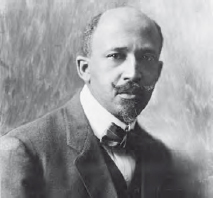New PhilosophyAfrican American Philosophy |
What is African American philosophy? |
African American philosophy has had at least three periods: in the nineteenth century period it is usually associated with abolitionism, most notably in the writings of Frederick Douglass (c. 1818–1895); in the early twentieth century, it is distinguished by the work of Alain Locke (1885–1954) and W.E.B. Dubois. Not until the 1970s did African American philosophy begin to function as a subfield within academic philosophy, and that was the beginning of its third period, which continues until the present day.
Aside from recognizing historically overlooked thinkers and ideas, African American philosophy has focused on identity, racism and its remedies, questions of reparations for black chattel slavery before the U.S. Civil War, and the question of whether there is a scientific foundation for the division of human beings into biological races.
A skeletal list of core classic readings in African American philosophy would include: Alexander Crummell’s (1819–1898) Destiny and Race: Selected Writings, 1840–1898 (2000), Frederick Douglass’ A Narrative of the Life of Frederick Douglass, an American Slave (1845), W.E.B. DuBois’ (1868–1963) The Souls of Black Folk and Dusk of Dawn (1945), Alain Locke’s (1886–1954) The New Negro (1925), Booker T. Washington’s (1886–1915) Up from Slavery: An Autobiography (1901), and Martin Luther King’s (1929–1968) A Testament of Hope: The Essential Writings and Speeches of Martin Luther King, Jr. (1986).

